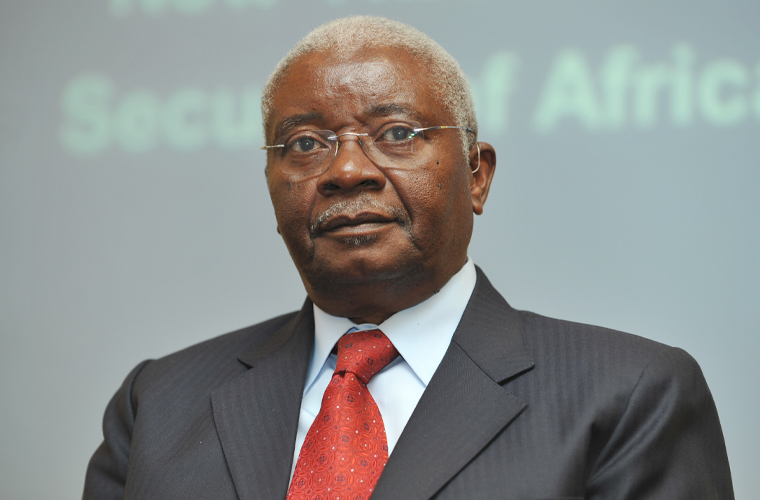Armando Guebuza was born Armando Emílio Guebuza on January 20, 1943, in northern Mozambique. His given names reflect the country’s long legacy as a colony of Portugal; traders from the European sea-faring power had been active along Mozambique’s Indian Ocean coastline as far back as the early 1500s. Blacks in Mozambique, descended from aboriginal San and Bantu-speaking peoples, were exploited for centuries as a laboring class and had no political voice. This system continued even after World War II—while other European nations were granting independence to their overseas colonies, Portugal was by then a right-wing dictatorship, and Mozambique, along with other properties like Angola and Macau, was declared an overseas province, bringing a flood of immigrants hoping to escape the repressive atmosphere in Portugal itself. As other African nations were finally achieving black self-rule, Mozambique was becoming an increasingly white society, and there were fears that it would become like its neighbor, South Africa, which was under the harsh rule of a white separatist government that kept its widely reviled policy of apartheid in place only by force.
The situation in Mozambique gave rise to a guerrilla movement for independence that was based on Marxist theories. Calling itself the Front for the Liberation of Mozambique, but better known by its acronym “Frelimo,” it began to win over villagers and enjoyed support from the Soviets and other Communist nations. Guebuza joined Frelimo at the age of 20 and rose to a prominent position in its leadership cadre during the war for Mozambique’s independence that began on September 25, 1964. Only when the Portuguese regime in Lisbon fell did Fre-limo succeed in taking control of Mozambique, and independence was declared on June 25, 1975. Mozambique’s first president was Guebuza’s Fre-limo colleague Samora Machel, who immediately implemented several Marxist-style programs, such as nationalization of all industries and collectivization of agricultural production. These economic programs were poorly managed, often staffed by disinterested Russian specialists, and Mozambique’s already devastated economy sunk into further decline as agricultural production plummeted and, with that, its vital export revenues.
Machel’s government made up for lost exports by becoming dependent on economic ties to South Africa, including labor contracts that sent Mozambican men to toil in South Africa’s hellish gold and diamond mines. Inside Frelimo—now a political party—there was a concerted opposition to such links to the apartheid regime, and Guebuza was apparently a key figure among these senior party officials. A July 1976 report in the New York Times from correspondent John F. Burns noted that since independence Mozambique was a place of still-roiling unrest, political repression, and widespread poverty. “Rumors of an impending coup, current for months, died down after reports that Armando Guebuza, the Interior Minister and acknowledged leader of the radical faction, had been stabbed by Mr. Machel’s bodyguards after a disagreement in the presidential palace in May.”
Despite that incident, Guebuza served as Interior Minister in Machel’s cabinet, and earned the nickname Vinte-quatro/Vinte (Portuguese for “24-20”) for the infamous policy enacted by his office: Any Portuguese person could be delivered a so-called “24-20” summons, which gave them just 24 hours to leave the country and permitted them to take just 20 kilograms of luggage out of Mozambique. Meanwhile, a divisive civil war with another guerrilla group called Renamo (the acronym for the Portuguese-language “Mozambican National Resistance”) was continuing to make Mozambique one of the African continent’s most violent and unstable places. The country descended into further chaos when Machel and several members of the government died in a mysterious 1986 plane crash in South Africa.
Following the death of Machel, Guebuza served on the ten-member presidential council that ran the country for the next few weeks and then served as Mozambique’s Transport Minister under the Fre-limo veteran who succeeded Machel. Joaquim Chissano would lead the country for the next 18 years as president, guiding the country out of its long and disastrous civil war and ruinous Marxist policies. Regarding the conclusion of hostilities with Renamo, Chissano appointed Guebuza to serve as chief negotiator at the 1992 Rome peace accords that helped bring an end to the internal conflict in 1995.
Chissano declined to run for a third term as president in 2004 elections, and Guebuza became the Frelimo candidate. He won with 63 percent of the vote, beating the Renamo candidate Alfonso Dhlakama. Sworn in as president on February 2, 2005, Guebuza took over a nation of 20 million that is the sixth poorest in the world. Its potential for economic success is dependent on its relatively untapped mineral resources, and Guebuza has actively sought out foreign investment.
The remaining symbol of Portuguese rule in Mozambique was the Cahora-Bassa hydroelectric dam on the Zambezi River, the largest dam in sub-Saharan Africa. Finished in 1975, it was sabotaged by Renamo during the civil war and needed extensive repairs. Portugal remained a majority stakeholder, but after 20 years of negotiations, the government in Lisbon agreed to a complicated $950 million deal that finally gave Mozambique control of Cahora-Bassa. The handover ceremony in November of 2007 in the village of Songo was a momentous occasion attended by Portugal’s minister for finance and thousands of Mozambicans. “This is our second independence,” Guebuza told the crowd, according to another report by Nevin, the African Business journalist. The president noted that back in 1975 Frelimo had decided to declare independence even though Cahora-Bassa, a key part of the country’s infrastructure, had not yet been secured by Frelimo forces. “However, like the struggle for our national liberation that took 12 years, we remained convinced that one day we would win because we knew we were right in our demands.”

